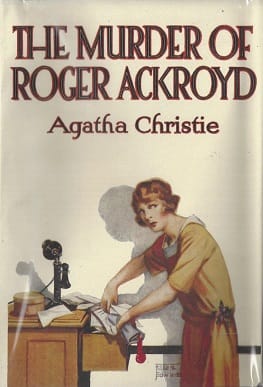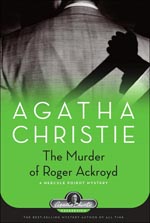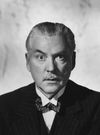'The Murder of Roger Ackroyd'

This bestseller of 1926 ensured that mystery writing and detective fiction would never be the same again. Christie broke the traditional barrier between writer and reader, the “fourth wall,” completely baffling the reader until near the end when Hercule Poirot indicts the storyteller himself. The shock waves were felt far beyond the world of detective fiction.
More revolutionary than Ulysses, it poisons the traditional relationship between the writer and the reader. Academics and intellectuals may still try to seduce students with the pleasures of the text, and claim that Ulysses was subversive because it was banned for its sexual content, and sophisticated because of its language play, but in Roger Ackroyd Christie was crass and vulgar by all the acceptable conventions of good taste and literary merit upheld by the smart set. Her storyteller deliberately deceives the reader without actually lying and when your subversion avoids being elitist, then you are truly a revolutionary.

Like Christie herself, Miss Marple and Hercule Poirot are, and were, consistently underestimated. Like many of her best characters (Battle, Marple), they win by concealing their true natures and their secret thoughts from criminals, readers and viewers. Often they hide in plain sight.
This is also why the book she wrote immediately before it, The Secret of Chimneys (1925) is so interesting, because it foreshadows Roger Ackroyd. Its main character, Anthony Cade, is wonderfully appealing but he is also somewhat ambiguous. I had the sense reading it that Christie was toying with the idea of making him unreliable, a liar perhaps, and even possibly a killer. She doesn't do so of course and he survives to the end as the hero, and she saves the real darkness for her subsequent masterpiece, The Murder of Roger Ackroyd.
